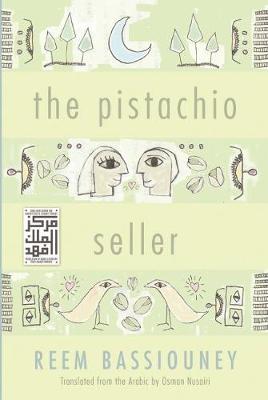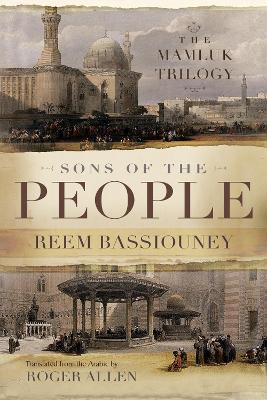Middle East Literature In Translation
2 total works
'It was Saturday. I remember. And while he was standing on a step ladder in the hall, changing a light bulb in the faint light coming through the window, I decided to love him'. So begins this wonderfully exuberant novel of quixotic adolescent longing and the enduring search for self. Set in middle-class urban Egypt, the story chronicles young Wafaa's struggle to come to terms with her own sexuality and her romantic infatuation with her cousin Ashraf, a spoiled and confident young Egyptian who was educated in England. Ashraf's worldliness and carefree attitudes stand in sharp contrast to Wafaa's provincial Islamic piousness. As both mature they find outside events encroaching upon their sheltered lives, forcing each to confront challenges to their youthful ideologies. Ashraf is chastened by an economic turnaround that takes him to the United States as an impoverished immigrant, and Wafaa begins to question her rigid fundamentalist beliefs that seem increasingly inadequate to make sense of the complex world around her. Reem Bassiouney effortlessly captures the voices of her characters, bringing them to life and allowing the reader to be fully immersed in their lives as they unfold in moving, often funny, and eventually triumphant ways. The Pistachio Seller introduces Bassiouney's work to an English audience for the first time.
Nominated for the 2023 Dublin Literary Award
This monumental family saga offers a vivid portrait of Egypt’s Mamluk period, one that is at both sweeping in scope and intimate in detail. Set in medieval Cairo, the novel centers on three generations of Egyptians, foreign-born Mamluks, and their descendants as their trials and victories mirror those of their turbulent country. The first volume, "Sons of the People", introduces us to Zaynab, the daughter of a middle-class merchant in Cairo who catches the eye of the powerful Mamluk amir Muhammad. After they marry, Zaynab is transported to the foreign world of Mamluk politics and wealth where she must navigate the complicated machinations of various rulers and raise their four children. Their oldest son becomes an architect and embarks upon the monumental task of building a grand mosque with Sultan Hasan as a symbol of the Mamluks rise to power. In the second volume "The Judge of Qus", Bassiouney tells the story of Amr ibn Ahmad ibn Abd al-Karim, a wise and compassionate judge of Islamic law whose refusal to bend to the demands of the Mamluk rulers ultimately leads to Amr’s downfall. The final volume, "Events of Nights," weaves together testimonies from three characters, each with narrow and differing perspectives on the novel’s events, subtly calling the readers’ attention to the unstable nature of historical fiction.
Filled with compelling drama, ruthless ambition, and tragic love, Bassiouney’s masterful trilogy brings the Mamluk’s rich cultural and architectural heritage to life through the eyes of one family.
This monumental family saga offers a vivid portrait of Egypt’s Mamluk period, one that is at both sweeping in scope and intimate in detail. Set in medieval Cairo, the novel centers on three generations of Egyptians, foreign-born Mamluks, and their descendants as their trials and victories mirror those of their turbulent country. The first volume, "Sons of the People", introduces us to Zaynab, the daughter of a middle-class merchant in Cairo who catches the eye of the powerful Mamluk amir Muhammad. After they marry, Zaynab is transported to the foreign world of Mamluk politics and wealth where she must navigate the complicated machinations of various rulers and raise their four children. Their oldest son becomes an architect and embarks upon the monumental task of building a grand mosque with Sultan Hasan as a symbol of the Mamluks rise to power. In the second volume "The Judge of Qus", Bassiouney tells the story of Amr ibn Ahmad ibn Abd al-Karim, a wise and compassionate judge of Islamic law whose refusal to bend to the demands of the Mamluk rulers ultimately leads to Amr’s downfall. The final volume, "Events of Nights," weaves together testimonies from three characters, each with narrow and differing perspectives on the novel’s events, subtly calling the readers’ attention to the unstable nature of historical fiction.
Filled with compelling drama, ruthless ambition, and tragic love, Bassiouney’s masterful trilogy brings the Mamluk’s rich cultural and architectural heritage to life through the eyes of one family.

